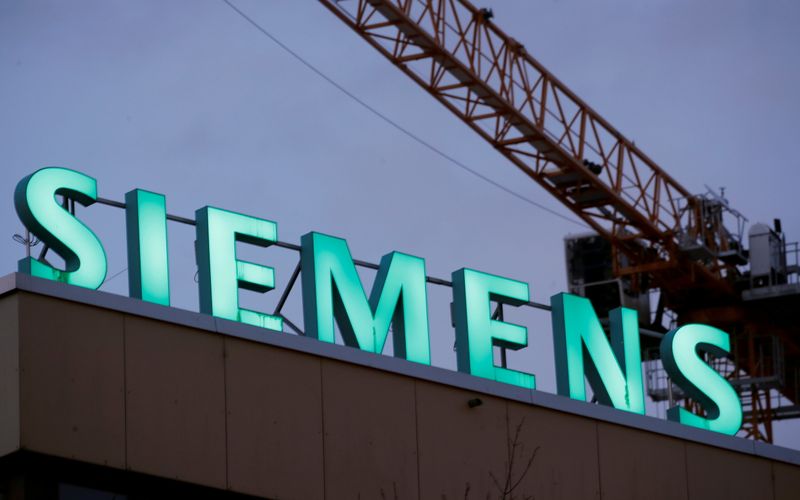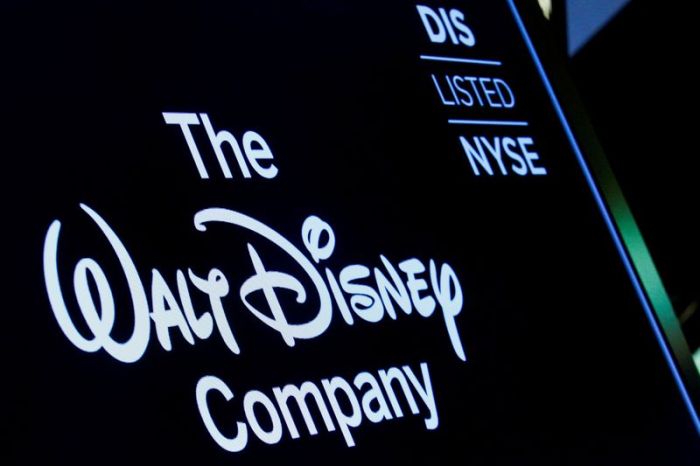ZURICH (Reuters) -Siemens expects supply chain problems that have hindered the industrial revival in the wake of the pandemic to ease next year, the engineering and technology company said on Thursday, as its fourth quarter sales and orders beat forecasts.
The maker of factory software and high-speed trains sees further profitable growth as problems thrown up by shortages of components and log-jammed logistics networks improve.
Siemens was leaning on its size and its own technology to get enough components to make its machinery and systems which are used by carmakers including Daimler to automate production lines, Chief Executive Roland Busch said .
“Knock on wood, we have come through the situation very well. As a result, we’ve been able to keep deliveries at a high level,” Busch told reporters.
“We pool demand for raw materials and components, which ensures our ranking as a relevant partner for more than 1,500 strategic suppliers,” he added. “We have very good relations with our suppliers.”
Like Swiss rival ABB, Siemens has been managing a shortage of semi conductor chips and higher raw materials prices as recovering global demand has outstripped suppliers’ ability to keep up.
Siemens was also raising prices to offset higher raw material, labour and component costs, something it was confident of being able to pass on to customers.
Still, the Munich company said it expects delivery times for its products to be extended, at least in the next six months, due to its big order backlog and shortages.
During the three months to the end of September, Siemens’s sales rose 18% to 17.44 billion euros ($20.17 billion), surpassing analysts’ forecast of 16.82 billion.
Orders rose 26% to 19.07 billion euros, ahead of expectations for 17.56 billion, it added.
But profit was held back by one-off gains reported a year earlier. Adjusted operating profit from its industrial business fell 14% to 2.27 billion euros, missing a forecast of 2.45 billion. Net income declined 29% to 1.33 billion euros.
For its 2022 business year, Siemens said it expected mid-single-digit comparable revenue growth, net of currency translation and changes to its portfolio of companies.
Analysts described the quarterly figures as strong, highlighting the company’s order growth and outlook. Siemens’s stock was trading 2% higher in mid-morning activity.
Busch, who took control from longstanding predecessor Joe Kaeser in October 2020, was “very optimistic” about benefiting from the recently agreed $1 trillion U.S. infrastructure stimulus package.
The announced split of U.S. rival General Electric into three separate companies however did not put Siemens under any pressure to act, he added. Siemens has already separated its health equipment and energy businesses.
“I see no reason at all to change anything in our strategy,” Busch said. “We have taken the steps – from a position of strength – that GE is now following.
“We are not a conglomerate, we are a focused technology group.”
(Reporting by John Revill; editing by Kirsti Knolle and Clarence Fernandez)

























